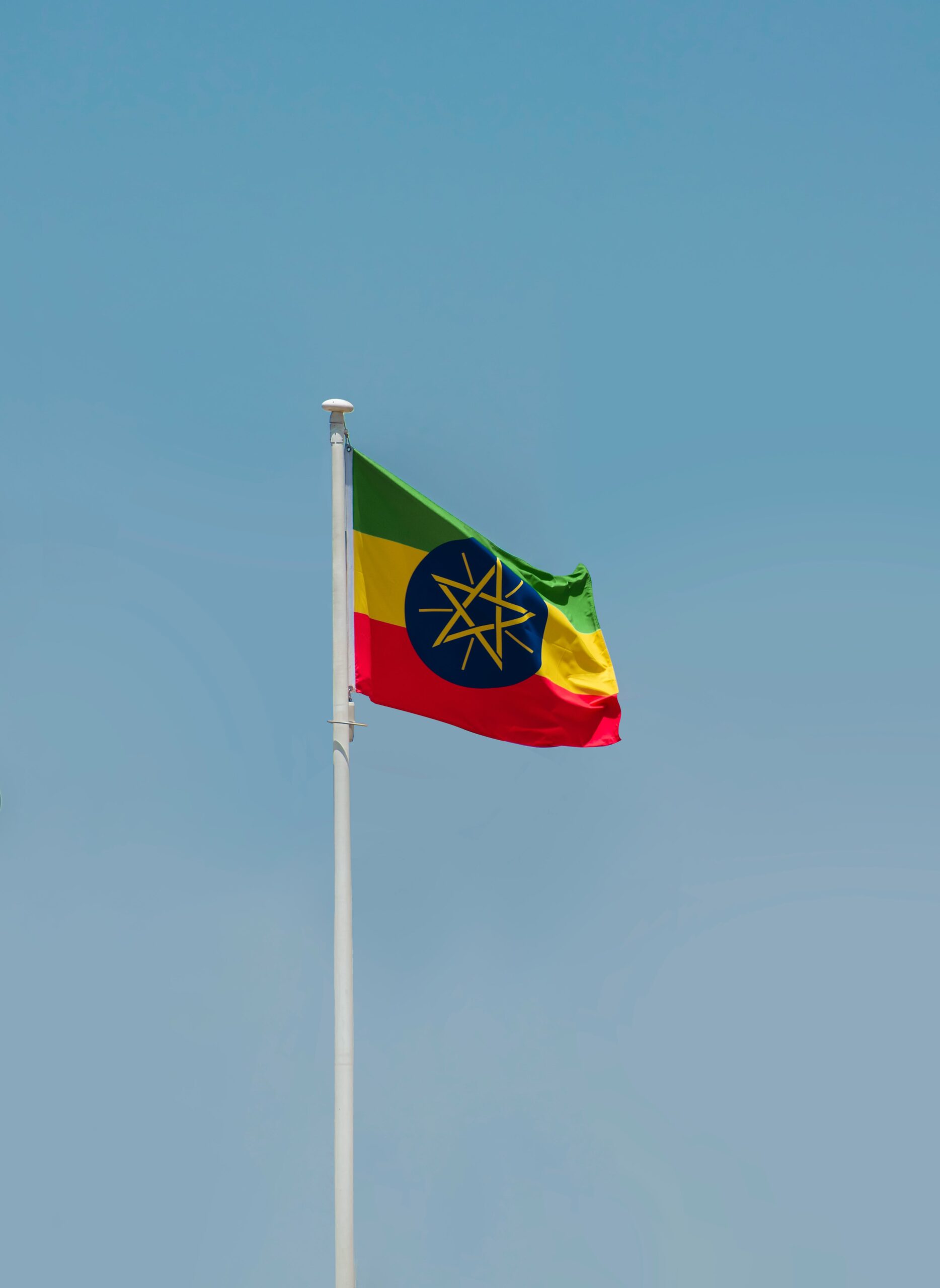Is Ethiopia Safe?
Is Ethiopia Safe for Travelers?
When planning a trip to Ethiopia, safety is a common concern for many travelers. Ethiopia, known for its rich history, stunning landscapes, and diverse culture, offers a unique experience for visitors. However, like any other travel destination, it’s essential to be aware of the safety conditions in the country to ensure a smooth and enjoyable journey.
Ethiopia, in general, is considered a safe country for tourists. The government has taken significant steps to improve safety and security in popular tourist areas. Cities like Addis Ababa, Lalibela, Gondar, and Bahir Dar are frequented by travelers from around the world without major safety issues. However, like any other destination, travelers should take certain precautions to ensure their safety throughout their visit.
One aspect to consider is health and medical facilities in the country. It’s important to have travel insurance that covers medical emergencies and evacuations, as the quality of healthcare facilities in Ethiopia might not be at par with Western standards. Additionally, staying updated on required vaccinations before traveling to Ethiopia is crucial to prevent any health-related issues during your stay.
While petty crime can occur, especially in crowded areas and markets, violent crimes against tourists are rare in Ethiopia. It’s advisable to remain vigilant of your surroundings, avoid displaying valuable items openly, and be cautious of pickpocketing in crowded places. Taking these basic precautions can significantly reduce the risk of falling victim to petty crimes during your trip.
Road safety is another consideration for travelers in Ethiopia. The country has a high rate of road accidents, mainly due to poor road conditions, lax enforcement of traffic laws, and the presence of livestock on roads in rural areas. When traveling within the country, it’s recommended to use a reputable tour company with experienced drivers and well-maintained vehicles to ensure safe transportation.
While no destination can guarantee absolute safety, Ethiopia is generally a safe country for travelers who exercise caution and follow basic safety guidelines. By being mindful of your surroundings, respecting local customs, and staying informed about potential risks, you can have a memorable and safe experience exploring the treasures that Ethiopia has to offer.
Ensuring Safety While Traveling in Ethiopia
When traveling to Ethiopia, ensuring your safety should be a top priority. Here are some essential safety measures for tourists to consider when visiting this culturally rich and diverse country:
Research and Planning
Before your trip, it is crucial to conduct thorough research about the areas you plan to visit in Ethiopia. Stay informed about the current political situation, local customs, and any travel advisories that may be in place. Understanding the cultural norms and practices will help you navigate the country respectfully and reduce any safety risks.
Choose Reputable Accommodations
Opt for reputable hotels or guesthouses that have good reviews from previous guests. This not only ensures your comfort but also your safety. Well-established accommodations are more likely to prioritize security measures, such as secure entry points and 24-hour assistance.
Stay Vigilant in Public Spaces
When exploring cities or crowded areas, always be mindful of your surroundings. Keep your belongings secure and avoid flashing valuable items like cameras or jewelry. Petty crime, such as pickpocketing, can occur in touristy areas, so remain vigilant at all times.
Transportation Safety
Use licensed and reputable transportation services when moving around Ethiopia. Whether using taxis, buses, or other forms of transportation, prioritize your safety by choosing trusted providers. If self-driving, be cautious of road conditions and adhere to local traffic laws to avoid accidents.
Respect Local Customs
Respecting local customs and traditions is not only a sign of cultural awareness but also contributes to your safety. Avoid sensitive topics in conversation, dress modestly in religious sites, and ask for permission before taking photos of individuals. By showing respect, you are less likely to encounter unpleasant situations.
Emergency Preparedness
Before your trip, make note of emergency contacts, including local authorities and your country’s embassy in Ethiopia. Carry a copy of your passport and relevant travel documents in case of loss or theft. Stay informed about the nearest medical facilities and have travel insurance for unexpected situations.
While Ethiopia is a beautiful and diverse destination, ensuring your safety as a tourist is essential. By following these safety measures and staying informed, you can have a safe and enjoyable trip to this captivating country.
Crime Rates and Safety Concerns in Ethiopia
When considering traveling to Ethiopia, it is essential to be aware of the current crime rates and safety concerns in the country. Like any other destination, Ethiopia has its share of safety issues that travelers should keep in mind to ensure a smooth and enjoyable trip.
One of the primary safety concerns in Ethiopia is petty crime. Pickpocketing, bag snatching, and other forms of petty theft are not uncommon, especially in crowded areas such as markets, bus stations, and public transportation. Travelers are advised to remain vigilant of their belongings at all times and avoid carrying large sums of money or valuable items in plain sight.
While violent crimes against tourists are rare, it is essential to stay cautious, especially at night. Avoid poorly lit areas and deserted streets after dark, and consider using reputable transportation services rather than walking alone at night.
Another safety concern in Ethiopia is the risk of scams and fraud. Travelers should be cautious when dealing with strangers offering unsolicited assistance or services. It is advisable to rely on official tour guides and reputable travel agencies to avoid falling victim to scams.
In terms of political unrest, Ethiopia has experienced periods of instability in the past. While the situation has improved in recent years, travelers should stay informed about current events and avoid participating in political demonstrations or gatherings that could potentially turn violent.
Health and hygiene are also important considerations for travelers visiting Ethiopia. It is recommended to drink bottled or boiled water, avoid consuming street food, and take necessary precautions to prevent mosquito bites to reduce the risk of illnesses such as malaria.
While Ethiopia offers a rich cultural experience and stunning landscapes, it is essential for travelers to be cautious and informed about the safety concerns in the country. By staying vigilant, following local customs, and using common sense, visitors can have a safe and memorable trip to Ethiopia.
Political Stability and Its Impact on Safety in Ethiopia
Ethiopia, a country known for its rich history and cultural heritage, has been experiencing various political challenges that have raised concerns regarding safety and stability in the region. The political landscape in Ethiopia has undergone significant changes in recent years, impacting the overall safety of both its citizens and tourists visiting the country.
One of the main factors influencing safety in Ethiopia is the level of political stability present in the country. Political instability can lead to civil unrest, protests, and potential conflicts that may pose risks to individuals within the country. Recent political developments in Ethiopia, such as ethnic tensions and power struggles, have highlighted the importance of understanding the political landscape before traveling to the region.
The impact of political stability on safety in Ethiopia can also be seen in the realm of security measures implemented by the government. In times of political uncertainty, the authorities may enforce stricter security protocols to maintain law and order. This can result in increased checkpoints, road closures, and restrictions on movement, which may affect travelers’ overall experience in the country.
Moreover, political instability can have a direct impact on the economy, leading to potential disruptions in services and infrastructure that are essential for ensuring a safe environment for both locals and visitors. Tourists planning a trip to Ethiopia should stay informed about the current political situation and take necessary precautions to safeguard their well-being during their stay.
Despite these challenges, Ethiopia remains a unique and captivating destination with much to offer in terms of history, culture, and natural beauty. By staying updated on the political landscape, following local news sources, and being mindful of any safety advisories, travelers can help ensure a safe and enjoyable experience in this diverse African nation.
While political stability can influence safety in Ethiopia, with proper planning and awareness, tourists can still explore the country’s wonders while minimizing potential risks. It is advisable to stay informed, exercise caution, and respect local customs to enhance one’s safety and contribute to a positive experience for all travelers visiting Ethiopia.
Traveling to Ethiopia: Ensuring a Safe and Enjoyable Trip
Traveling to Ethiopia can be an exciting and enriching experience for any tourist. As with any travel destination, it is essential to prioritize safety to make the most of your trip. Here are some tips for ensuring a safe and enjoyable visit to Ethiopia.
Research and Plan Ahead
Before traveling to Ethiopia, it is crucial to research the destination thoroughly. Familiarize yourself with the local customs, culture, and current events. Understanding the political and social landscapes can help you make informed decisions during your trip.
Stay Informed
While in Ethiopia, stay informed about your surroundings. Keep up-to-date with local news and heed any travel advisories issued by your government. Being aware of your environment can help you avoid potential safety risks.
Respect Local Customs
Respect for local customs and traditions is key to ensuring a positive experience in Ethiopia. Be mindful of dress codes, gestures, and behaviors that may be considered offensive. By showing respect for the local culture, you are more likely to be welcomed warmly by the Ethiopian people.
Secure Your Belongings
To prevent theft or loss of valuables, secure your belongings at all times. Consider using a money belt or a secure bag to carry your essentials. Avoid displaying large sums of money or valuable items in public to reduce the risk of becoming a target for theft.
Use Reliable Transportation
When moving around Ethiopia, opt for reputable transportation services. Use registered taxis or trusted car rental companies to ensure your safety during travel. Avoid hitchhiking or accepting rides from strangers to minimize potential risks.
Stay Vigilant in Crowded Areas
In crowded places such as markets, bus stations, or tourist sites, remain vigilant and keep a close eye on your belongings. Pickpocketing can occur in busy areas, so staying alert can help you avoid falling victim to theft.
Seek Local Advice
If you are unsure about safety concerns in specific areas, seek advice from local authorities or your accommodation staff. Locals can provide valuable insights and tips to help you navigate the region safely.
By prioritizing safety and following these tips, you can enjoy a memorable and secure trip to Ethiopia. Embrace the rich culture, stunning landscapes, and warm hospitality that the country has to offer while ensuring your well-being throughout your journey.
Conclusion
Traveling to Ethiopia can be a rewarding and enriching experience for tourists who take the necessary precautions. While safety concerns exist like in any other destination, being well-informed and prepared can significantly mitigate potential risks. Understanding the current safety landscape, following safety measures, and staying alert can contribute to a safe and enjoyable trip to this culturally diverse and historically rich country.
When considering the question of safety in Ethiopia, it is essential for travelers to acknowledge both the positive aspects and potential challenges. Ethiopia, with its stunning landscapes, rich history, and vibrant culture, offers a unique travel experience. However, like many developing countries, there are safety concerns that visitors should be mindful of while exploring the country.
To ensure a safe journey, tourists are advised to take necessary safety measures, such as avoiding displaying valuable items, being cautious in crowded areas, and staying vigilant against petty crimes like pickpocketing. By staying informed about local customs and traditions, travelers can show respect for the local population and minimize the risk of cultural misunderstandings that might lead to unpleasant situations.
When assessing the crime rates in Ethiopia, it is important to note that like any other country, there are instances of crime, both petty and more serious. Visitors are advised to exercise caution in urban areas, especially at night, and to remain aware of their surroundings at all times. By taking common-sense precautions and avoiding risky situations, tourists can reduce the likelihood of falling victim to crime while in Ethiopia.
The political stability of a country can have a significant impact on the overall safety of travelers. In recent years, Ethiopia has undergone political reforms aimed at promoting peace and stability. While the situation remains fluid, tourists are encouraged to stay informed about any developments that may affect their travel plans and to follow guidance from local authorities.
To ensure a safe and enjoyable trip to Ethiopia, tourists are advised to plan ahead, obtain necessary travel information, and consider booking with reputable tour operators. By researching the destination, learning about local customs, and respecting the local culture, visitors can enhance their travel experience while staying safe and secure. Additionally, travelers should consider purchasing travel insurance that covers medical emergencies, trip cancellations, and other unforeseen events that may occur during their stay.
By following these tips and staying informed about safety concerns in Ethiopia, travelers can enjoy all that this diverse and culturally rich country has to offer. With careful planning, a respectful attitude towards the local population, and a willingness to adapt to new surroundings, visitors can have a safe and memorable experience exploring the wonders of Ethiopia.







